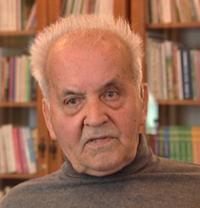Even though I was free already, I still felt the steps of warder with the automatic in his hands behind my back

Stáhnout obrázek
Emil Tressa was born in 1927 in Spišská Belá. He spent tranquil childhood in the circle of his family where everybody led an active religious life. He was only eighteen-year-old boy when he was caught, interrogated and wrongfully sentenced for the alleged offence of high treason. Till these days he doesn‘t know the real reason for his arrest because he had never committed anything unlawful. He recalls only one meeting with his friends where they told each other that they didn‘t agree with the communist regime. He was fortunate that he didn‘t experience any terror or battering either during his interrogations or in the prison. Warders were quite considerate of him. However, he heard a lot of ghastly stories from his cellmates. There were not only murderers, but also priests in his cell. In spite of all the events, he is able to turn this period of his life into a joke. Thanks to his religious belief he found many precious friends for life among his cellmates.
